GENDER & DEVELOPMENT
FOCUS AREA -
INTERSEX PERSONS

Definition of a Eunuch
While reviewing the history of eunuchs, we came across two types. The first was a congenital eunuch, one born with ambiguous genitals. A congenital eunuch is also referred to as a hermaphrodite, intersex, or a natural eunuch. The second type was a man-made eunuch, one who has been emasculated by human action. Also referred to as a transsexual. When we talk about eunuchs, we are referring to the congenital eunuchs only. We consider transsexuals and transvestites to be male persons adopting a different role than the one they were naturally born with.
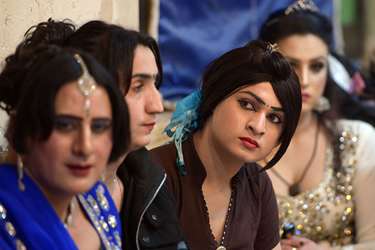
Eunuchs of the Subcontinent
Eunuchs have a history that spans back thousands of years. It is well known that eunuchs played an important role during the Mughal era in the Indian subcontinent. In the olden days, eunuchs enjoyed a high station in society, very unlike the eunuchs of today, who are shunned by society. Eunuchs had access to royal palaces where they were employed and respected as loyal guards, administrators, teachers of liberal and military arts, warriors, treasurers, and faithful servants.
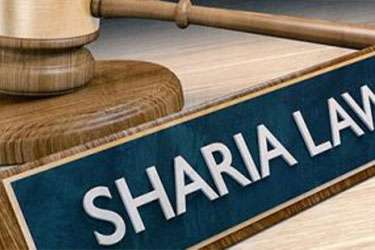
Inheritance Under Islamic Law
There seems to be some confusion in society, regarding the inheritance rights of eunuchs. It is important to note here that there is no dispute about the rights of inheritance of the transvestites (zenanas) or the trans-genders (nirbans; castrated men), as they are males who have been castrated or dress up like women. They are entitled to a male person’s share in their inheritance. The persons whose inheritance rights are disputed are eunuchs (khusras, hermaphrodites, or intersex individuals) because it is difficult to ascertain whether they should get the share of a male or a female under Islamic Law. It may come as a surprise to some, however, eunuchs have inheritance rights under Islamic Law.

Definition of a Eunuch
While reviewing the history of eunuchs, we came across two types. The first was a congenital eunuch, one born with ambiguous genitals. A congenital eunuch is also referred to as a hermaphrodite, intersex, or a natural eunuch. The second type was a man-made eunuch, one who has been emasculated by human action. Also referred to as a transsexual. When we talk about eunuchs, we are referring to the congenital eunuchs only. We consider transsexuals and transvestites to be male persons adopting a different role than the one they were naturally born with.

Eunuchs of the Subcontinent
Eunuchs have a history that spans back thousands of years. It is well known that eunuchs played an important role during the Mughal era in the Indian subcontinent. In the olden days, eunuchs enjoyed a high station in society, very unlike the eunuchs of today, who are shunned by society. Eunuchs had access to royal palaces where they were employed and respected as loyal guards, administrators, teachers of liberal and military arts, warriors, treasurers, and faithful servants.

Inheritance Under Islamic Law
There seems to be some confusion in society, regarding the inheritance rights of eunuchs. It is important to note here that there is no dispute about the rights of inheritance of the transvestites (zenanas) or the trans-genders (nirbans; castrated men), as they are males who have been castrated or dress up like women. They are entitled to a male person’s share in their inheritance. The persons whose inheritance rights are disputed are eunuchs (khusras, hermaphrodites, or intersex individuals) because it is difficult to ascertain whether they should get the share of a male or a female under Islamic Law. It may come as a surprise to some, however, eunuchs have inheritance rights under Islamic Law.
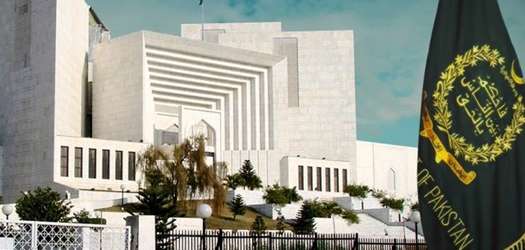
Supreme Court Judgements
In 2009, Aslam Khaki, the Chairman of Islamic Welfare Trust, and an attorney specializing in Islamic law, petitioned the Supreme Court of Pakistan to protect the hijra community’s constitutionally guaranteed right to equal treatment before law. The petition stressed that the rights of the hijra community were being collectively violated by their families and society in general. They are rejected by their families and discriminated, marginalized and shunned by society. They are neglected by the government and the police force maltreats and harasses them. The petition asserted that this treatment was a violation of their fundamental rights. In July 2009, the Supreme Court took up a petition under Article 184(3) of the Constitution, ordering all four social welfare secretaries to conduct surveys with a view to documenting the number of eunuchs across the country; and to recommend measures that would fully integrate eunuchs into the society.

Definition of a Eunuch
While reviewing the history of eunuchs, we came across two types. The first was a congenital eunuch, one born with ambiguous genitals. A congenital eunuch is also referred to as a hermaphrodite, intersex, or a natural eunuch. The second type was a man-made eunuch, one who has been emasculated by human action. Also referred to as a transsexual. When we talk about eunuchs, we are referring to the congenital eunuchs only. We consider transsexuals and transvestites to be male persons adopting a different role than the one they were naturally born with.

Eunuchs of the Subcontinent
Eunuchs have a history that spans back thousands of years. It is well known that eunuchs played an important role during the Mughal era in the Indian subcontinent. In the olden days, eunuchs enjoyed a high station in society, very unlike the eunuchs of today, who are shunned by society. Eunuchs had access to royal palaces where they were employed and respected as loyal guards, administrators, teachers of liberal and military arts, warriors, treasurers, and faithful servants.

Inheritance Under Islamic Law
There seems to be some confusion in society, regarding the inheritance rights of eunuchs. It is important to note here that there is no dispute about the rights of inheritance of the transvestites (zenanas) or the trans-genders (nirbans; castrated men), as they are males who have been castrated or dress up like women. They are entitled to a male person’s share in their inheritance. The persons whose inheritance rights are disputed are eunuchs (khusras, hermaphrodites, or intersex individuals) because it is difficult to ascertain whether they should get the share of a male or a female under Islamic Law. It may come as a surprise to some, however, eunuchs have inheritance rights under Islamic Law.

Supreme Court Judgements
In 2009, Aslam Khaki, the Chairman of Islamic Welfare Trust, and an attorney specializing in Islamic law, petitioned the Supreme Court of Pakistan to protect the hijra community’s constitutionally guaranteed right to equal treatment before law. The petition stressed that the rights of the hijra community were being collectively violated by their families and society in general. They are rejected by their families and discriminated, marginalized and shunned by society. They are neglected by the government and the police force maltreats and harasses them. The petition asserted that this treatment was a violation of their fundamental rights. In July 2009, the Supreme Court took up a petition under Article 184(3) of the Constitution, ordering all four social welfare secretaries to conduct surveys with a view to documenting the number of eunuchs across the country; and to recommend measures that would fully integrate eunuchs into the society.

Supreme Court Judgements
In 2009, Aslam Khaki, the Chairman of Islamic Welfare Trust, and an attorney specializing in Islamic law, petitioned the Supreme Court of Pakistan to protect the hijra community’s constitutionally guaranteed right to equal treatment before law. The petition stressed that the rights of the hijra community were being collectively violated by their families and society in general. They are rejected by their families and discriminated, marginalized and shunned by society. They are neglected by the government and the police force maltreats and harasses them. The petition asserted that this treatment was a violation of their fundamental rights. In July 2009, the Supreme Court took up a petition under Article 184(3) of the Constitution, ordering all four social welfare secretaries to conduct surveys with a view to documenting the number of eunuchs across the country; and to recommend measures that would fully integrate eunuchs into the society.

Constitution of Pakistan
The Constitution of Pakistan has incorporated provisions about the right to free & compulsory education in multiple Articles. Article 25A of the constitution highlights the fundamental right to education. The state must ensure that all children between the ages of five and sixteen receive free and compulsory education, as determined by law. Pakistan has officially endorsed the Universal Declaration on Human Rights (UDHR). Article 26 (1) of the UDHR recognizes that everyone has the right to education. Primary education must be accessible. Nevertheless, ratified international agreements in Pakistan do not have the force of law and must be implemented through legislative means.

Pakistan Vision 2025
Pakistan Vision 2025 aims to expand education levels and improve education quality substantially. A significant goal of Pakistan Vision 2025 is to raise the primary school enrollment and completion rate to 100% and the literacy rate to 90% by focusing on improving access to and the quality of Primary Education. Furthermore, it includes bringing the primary and secondary gender parity index to 1 and doubling the percentage of women in the labor force from 24% to 45%. To create a knowledge-based economy, the plan asks for a significant increase in public spending on higher education from 0.2% to 1.4% of GDP and a substantial increase in enrollment from 1.5 million to 5 million.
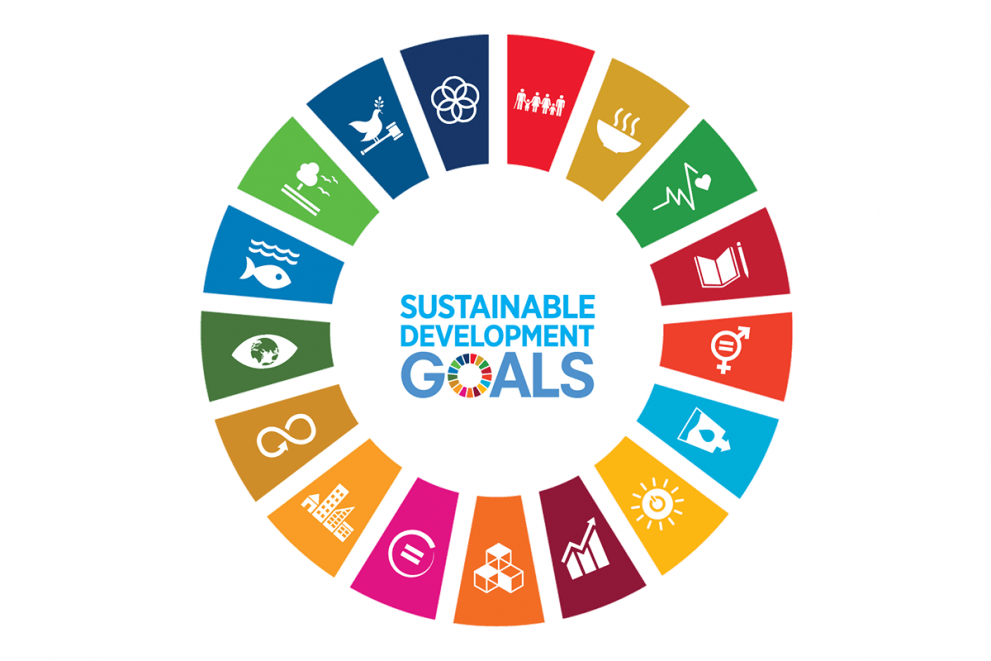
Sustainable Development Goals 2030
Sustainable Development Goal 4 (SDG 4) is about quality education. SDG4 seeks “inclusive and equitable quality education and to promote lifelong learning opportunities for all.” SDG 4 has ten education-related goals. Seven of these goals describe the expected results, while the remaining three explain the way to achieve them. The ten goals include Universal Primary & Secondary Education, Early Childhood Development and Universal Pre-primary Education, Equal Access to Technical/Vocational and Higher Education, Relevant Skills for Decent Work, Gender Equality and Inclusion, Universal Youth Literacy, Education for Sustainable Development, Global Citizenship, Effective learning environments, Scholarships, and Teachers & Educators.

Constitution of Pakistan
Article 25 of the Constitution of Pakistan includes provisions for protecting and preserving the rights of individuals who identify as intersex. Article 25 guarantees legal equality and impartial protection under the law and explicitly prohibits discrimination solely based on gender. The Transgender Act of Pakistan was enacted in 2018 to ensure legal recognition and security of the rights of transgender individuals, thereby promoting equality. Nonetheless, CREDP believes that a distinct difference exists between Transgender individuals and Intersex Persons, thereby rendering this legislation incapable of recognizing the Intersex population.
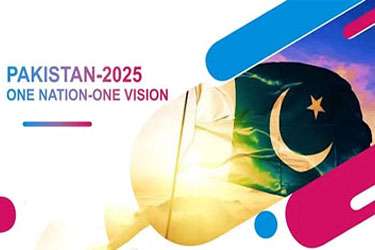
Pakistan Vision 2025
Pakistan Vision 2025 seeks a just and equitable society in Pakistan where vulnerable and marginalized segments of the society will be mainstreamed.

Sustainable Development Goals 2030
The establishment of gender equality is a crucial component of upholding human rights and fostering the creation of a harmonious, thriving, and enduring worldwide community. The fifth goal of the Sustainable Development Goals (SDGs) is to attain gender parity and enhance the empowerment of all genders, including individuals who identify as intersex. Sustainable Development Goal 10—"Reduced Inequalities"—aims to reduce inequality within and between states. The Sustainable Development Goal aims to reduce wage inequality and other disparities by age, gender, disability, race, culture, origin, faith, and economic class.